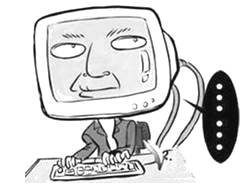题目内容
【题目】On a cold winter day, many years ago, a French art teacher named Pierre Chevalier got on a train in Lyon to go to Paris. When he started his journey, he didn’t know that it was the beginning of almost 40 years of accidents and near death experiences.
During the journey, the train fell into an icy river, killing 12 passengers. Chevalier managed to swim back to the river bank. He only had a broken leg.
Two years later, Chevalier was on a plane from Paris to Moscow when a door suddenly opened and he fell out. A few minutes later, the plane crashed(坠毁); 27 people were killed. Chevalier was so lucky that he landed in a haystack(干草堆).
A few years later, he was hit by a bus, but again had no serious injuries. Then a year after that, he was driving on a mountain road when he saw a truck coming straight at him. He drove the car off the road, jumped out, landed in a tree—and watched his car fall 100 metres down the mountain.
“There are two ways you can look at it,” Chevalier said. “I’m either the world’s unluckiest man, or the world’s luckiest.” When a reporter asked Chevalier what he thought, he chose the “luckiest” one.
Two years ago, aged 71, Chevalier bought his first lottery ticket(彩票) in 50 years and won more than 2 million.
After this, a TV company in America said they wanted him to make an advertisement. At first he accepted, but then he changed his mind. Chevalier said he wouldn’t fly to Los Angeles for the filming, because he didn’t want to push his luck. Who knows? If he had accepted the invitation, maybe he would have had another accident. But Mr Chevalier is a lucky man. If he’d had another accident, he probably would have survived that too!
【1】In the train accident many years ago, Chevalier ________.
A. didn’t get injured at all
B. was lucky enough to be alive
C. was finally pulled out of the river
D. was the only passenger to survive
【2】Why did Chevalier refuse to make the advertisement?
A. Because he had won ![]() 2 million.
2 million.
B. Because he didn’t want to leave home.
C. Because he didn’t want to risk his life.
D. Because he didn’t like the TV company.
【3】The text mainly talks about ________.
A. a man with nine lives
B. the unluckiest man in the world
C. a man who traveled around the world
D. a man who earned ![]() 2 million in a lottery
2 million in a lottery
【答案】
【1】B
【2】C
【3】A
【解析】本文介绍一个很幸运的男人Mr Chevalier,他是一个命非常大的人,总能幸存于事故中。
【1】B
细节理解题。根据第二段中During the journey, the train fell into an icy river, killing 12 passengers. Chevalier managed to swim back to the river bank. He only had a broken leg. Chevalier在火车事故中只是断了一条腿,足够幸运地还活着。故选B。
【2】C
细节理解题。根据最后一段中Chevalier said he wouldn’t fly to Los Angeles for the filming, because he didn’t want to push his luck.可知他不想冒生命危险。故选C。
【3】A
主旨大意题。根据最后一段中If he had accepted the invitation, maybe he would have had another accident. But Mr Chevalier is a lucky man. If he’d had another accident, he probably would have survived that too!可知Mr Chevalier很幸运,是一个命非常大的人,总能幸存于事故中。故选A。



